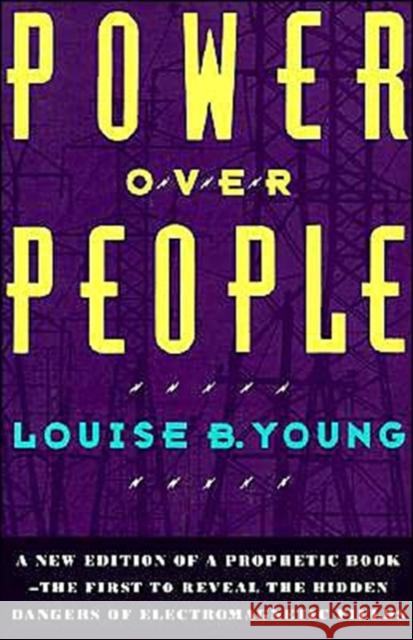Power Over People » książka
Power Over People
ISBN-13: 9780195075786 / Angielski / Miękka / 1992 / 272 str.
For most of us, life is spent in one vast electromagnetic field. In the office we sit in front of computer terminals, at home, in front of the television. We cook our meals in microwave ovens, trim our hedges with electric shears, illuminate our houses, workplaces, and streets with incandescent and fluorescent lighting. And until only recently, the potential hazards imposed by life in the shadows of high-voltage power lines have hardly been considered.
First published in 1973, Power Over People was the first book to address the frightening potential side effects of our dependence on electrical energy. Now brought up to date with a new introduction, and including an epilogue that offers the most current studies and findings available today, this classic book is more timely than ever. Louise Young here lays bare the short-sighted, materialistic policies of the electric power industry, showing how power and the conglomerates that produce it have clearly won out over rights and safety concerns of people. She provides disturbing documentary evidence that demonstrates how long-term exposure to radiation from power lines can cause brain cancer, childhood leukemia, as well as damage to the nervous system. Through the course of the book we come to understand that what is often blindly accepted as "progress" can mean the inexorable advance of environmental destruction and the withering--rather than enhancing--of the quality of life in America.
Based on a case-study of a small, rural community in Ohio, Young shows in compelling fashion what happens when a grass-roots group of concerned citizens resists the construction of the world's largest electrical transmission towers, literally in their own backyards. Her story of their ultimate failure becomes a stinging indictment of indifferent government agencies and the lax laws that fail to protect the environment.
Lively, readable, and, at times, even shocking, this is a book for environmentally-minded and safety-conscious readers of the 1990s. Its wealth of information, its incisive analysis, and its bold confrontation of facts we can no longer afford to ignore make Power Over People a book everyone should read and reflect upon.











